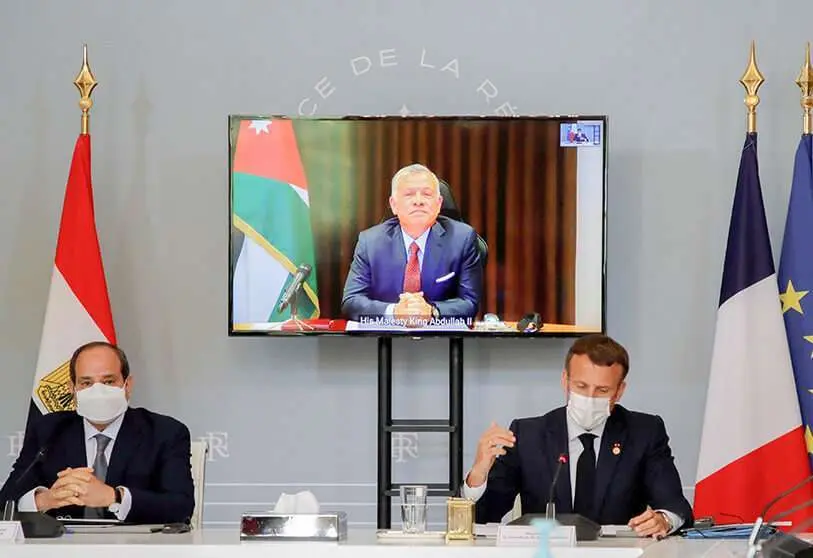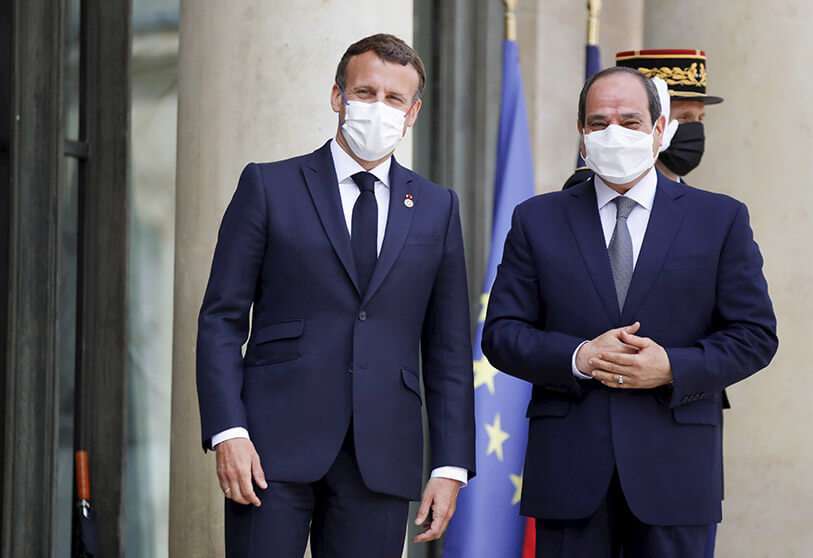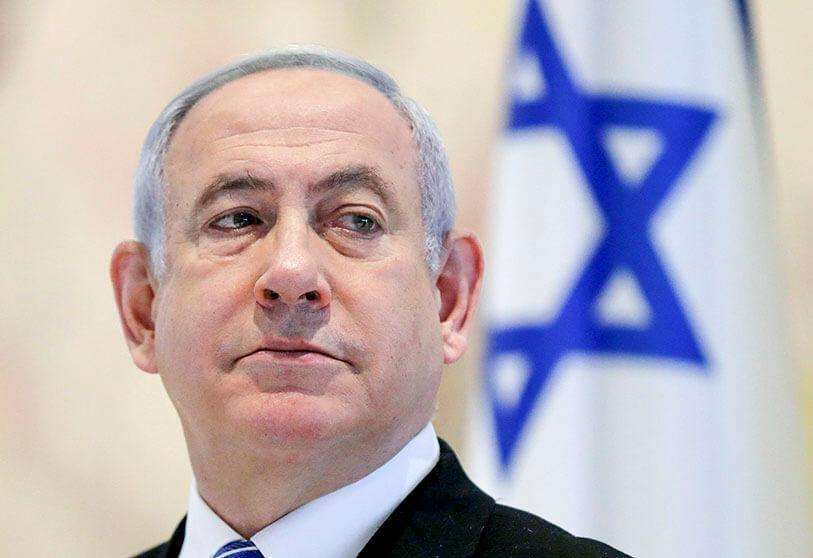Macron and Al-Sisi meet to discuss ceasefire in Israel

Emmanuel Macron and his Egyptian counterpart, Abdel Fattah-al Sisi, have held talks aimed at leading a peace process that would bring a ceasefire to the Israeli-Palestinian conflict and put an "end to hostilities". According to Macron, France and Egypt would now seek the support of Jordan to begin to take the first steps towards peace.
According to Macron, the agreement between Palestinians and Israelis would be "one of the elements that would make it possible to accompany a ceasefire, key to allowing the reunification of the Palestinian components and guaranteeing non-violence". These meetings have taken place against a backdrop of direct civil confrontation between Palestinians and Israelis that has already claimed the lives of at least 198 Palestinians and 10 others killed in Israel. Tensions and clashes between the two sides continue to escalate in a tension that seems to be far from reaching peace.
In this sense, and with the aim of laying the foundations for a ceasefire, Macron has stressed that in the coming days he intends to meet with the King of Jordan to "make a concrete proposal on this path". In addition, UN diplomatic sources are in favour of starting a de-escalation process with the help of Qatar and Egypt.

On the other hand, France's support for diplomacy with Egypt is clear. French government spokesman Gabriel Attal told RTL radio that there has been "a diplomatic offensive in recent days that will continue in the coming hours. We support the idea of Egyptian mediation because both the Egyptians and the Jordanians talk to everyone in the region".
However, Israel continues to defend "its right to defend itself" and is reluctant to seek solutions in pacts that integrate Palestinian formations, especially with Hamas. According to Israel's ambassador to Spain, Rodica Radian-Gordon, "you cannot negotiate with Hamas. It does not even recognise Israel's legitimacy".
In this respect, Gordon urged the Palestinian people to support other political forces in the upcoming political processes that move away from Hamas' jihadism and "push them towards a ceasefire".

Barely half a year after the signing of the Abraham Accords, Israel assures that the conflict does not have to affect the parties to the agreement. However, they do expect an international reaction that rejects Hamas and defends Israel's moves to "act in defence" in response to Hamas attacks.
Moreover, since the Camp David Accords between Egypt and Israel, Egypt has consistently sought to mediate the Palestinian-Israeli conflict on a regular basis. In these agreements, Israel returned full sovereignty over the Sinai Peninsula to Egypt and in return Egypt officially recognised the state of Israel, making it the only Arab country to recognise its legitimacy.
On the other hand, Benjamin Netanyahu remains determined to complete the attacks aimed at "terrorist targets", calling the operation on Gaza "moral and just" and warning that "whoever acts like a terrorist will be punished like a terrorist". Clashes between Palestinians and Israelis continue to escalate in an unprecedented way since 2014.








